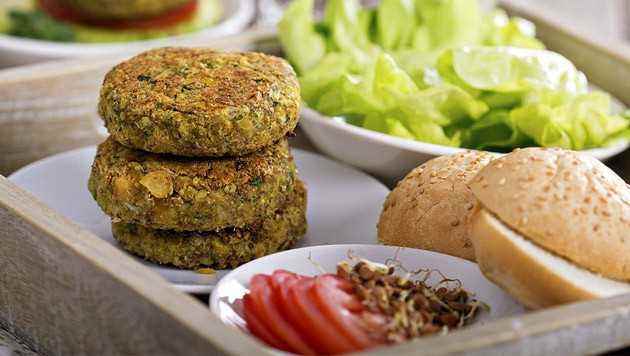Many thought vegan diets were a 1990s trend that will quickly become a thing of the past. Many were wrong. In several families and canteens, the kitchen is unthinkable without vegan dishes. We show you the five biggest misconceptions that people associate with vegan nutrition.
Misconception 1: Being vegan consists only of dietary rules. The opposite is the case: veganism is a “way of life”, the adaptation of an ethical system. Only part of it is diet. People who only eat plant-based foods but are not vegan are not referred to as “vegans”. For example: Vegans do not take any medications that have been tested on animals. They also avoid such cosmetics and cleaning agents. They don’t wear animal skin, fur, or feathers because they think animals have to suffer for it. A true vegan does not go to the circus or the zoo and fights against the exploitation of animals (animal breeding, animal shows). Misconception 2: Vegans are arrogant and discriminatoryMany people may have this impression of vegans because they often express their opinions about the consumer society. The organization PETA is known for its sensational, provocative demonstrations. When vegans make a blanket judgment, they often just want to express their displeasure at the senseless suffering of living beings sentenced to death. Misconception 3: Vegan equals salad Although numerous books on vegan cuisine have already been published, the rumor still persists that “Vegan equals salad”. That’s what meat eaters say. Today the burger, pizza and confectionery parlors are full of plant-based delicacies. There are millions of vegan recipes on the internet. Misconception 4: Vegan nutrition is healthy This is definitely not true, because we can also stuff chips, popcorn and sweets all day long and that also counts as vegan. No, you need a menu and you have to stick to it if you want to eat healthily. So many lose weight, gain energy, conquer civilization diseases. That’s not magic, meat eaters can do that too. Misconception 5: Vegan diet is monotonous Exactly the opposite is the case. A spectrum without meat, fish and dairy products opens up that you wouldn’t see otherwise. Lots of new staple foods are coming into the house. Red lentils, beans, bulgur, buckwheat, millet and chinoa are important ingredients in vegan cuisine, as are the many spices. Curry, oily kernels and dried fruits are available, not just soya. The different grains (cashew, pecan nuts) are also so important because the counterparts of the dairy products are developed from them.I’ll be vegan then: Happy and fit and save the world at the same time”Living vegan? What do you eat, what do you give up? Bettina Hennig dares the experiment and banishes meat, fish, milk, eggs and honey from the kitchen”.10.27€Click here for the book.One Pot Vegan to take away, please!: With 25 quick recipes from all over the world!10.07 €Click here for the book.One Pot Vegan: 100 delicious and healthy recipes (vegan cookbook, volume 2)10.07€Click here for the book.Vegan cookbook: The large vegan recipe book with over 244 vegan recipes for professionals and beginners + nutritional information and numerous pictures – including grilling and culinary cuisine12.10€Click here for the book.Vegan recipes for professionals: The ultimate cookbook with 200 healthy vegan recipesIdeal for people in work or for anyone who has little time.15.12€Click here to the book.Vegan cookbook for beginners, students, professionals and lazy peopleThe most delicious vegan recipes for a plant-based and healthy diet in everyday life – incl. seasonal calendar€16.95Click here for the book More product recommendations can be found in our comparison portal, offers and discounts are available in our voucher portal. This article was created in editorial independence. As an Amazon partner, however, we earn from qualified sales. The prices may vary on a daily basis.
source site-11
